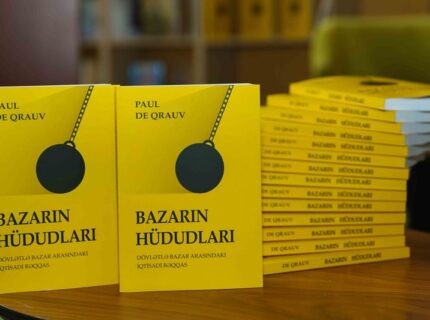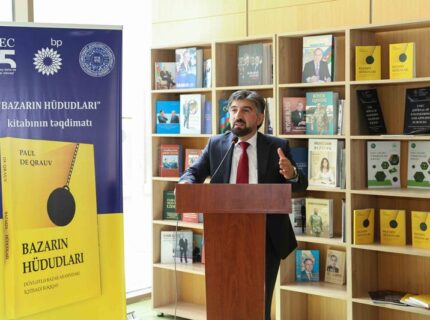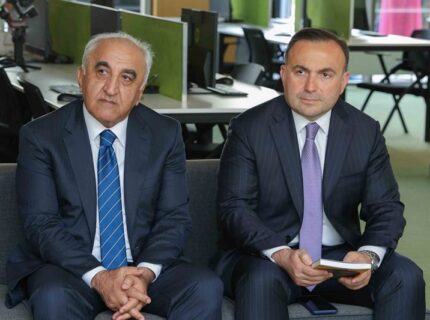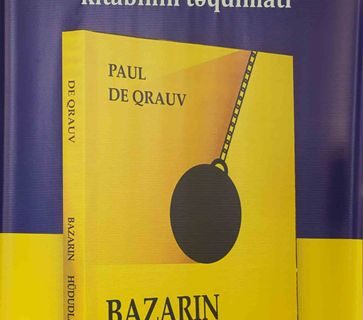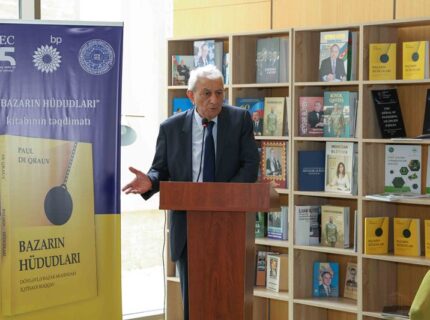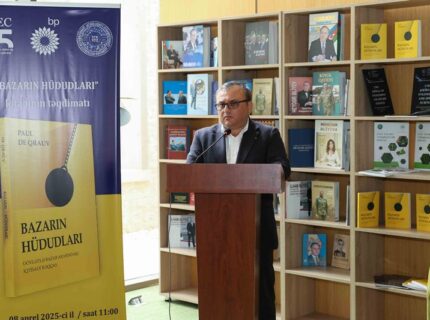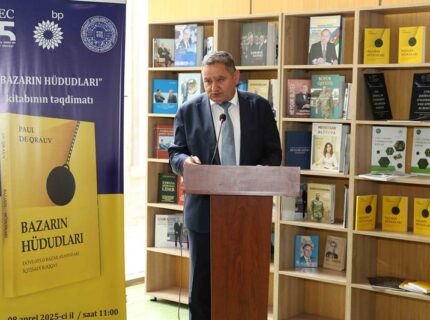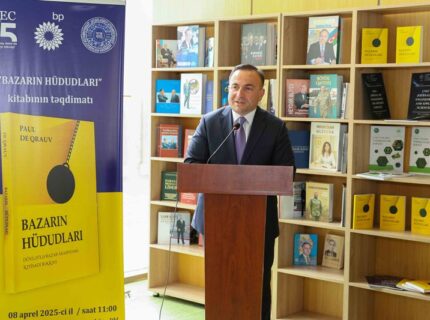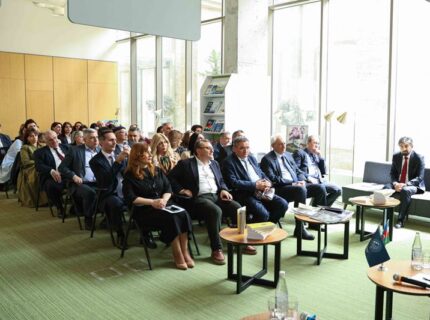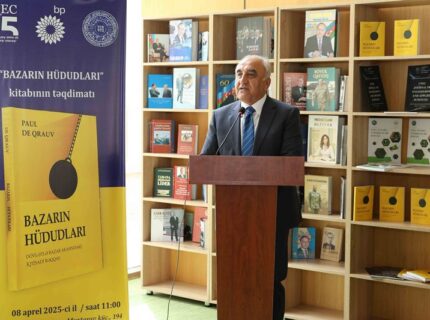The Book “The Limits of the Market”, Translated by UNEC, Presented to the Public
As part of the Science Festival, UNEC hosted the presentation of “The Limits of the Market: The Economic Dance Between the State and the Market”, a book by Professor Paul De Grauwe of the London School of Economics, newly translated into Azerbaijani.
Speaking at the event, the head of the translation team, UNEC Rector’s Advisor and Associate Professor Elshan Baghirzada, emphasized the significance of the book. He noted that the publication offers an in-depth analytical perspective on public policy and the prevention of economic crises, thoroughly examining the interplay between the market and the state. He added that translating this work into Azerbaijani would create broad opportunities for researchers, students, and professionals specializing in this field to gain a deeper understanding of the market-state relationship.
Bakhtiyar Aslanbayli, BP’s Vice President for the Caspian region, stated that by supporting the translation of this book, BP aims to contribute to the understanding of this crucial topic among researchers and experts in the relevant field in Azerbaijan, and to the development of innovative, research-based economic strategies in the country. He highlighted that holding the presentation as part of UNEC’s Science Festival reaffirms BP’s commitment to the development of education resources and science in Azerbaijan. Aslanbayli also pointed out that translating international publications into Azerbaijani enriches the country’s terminological base.
Etibar Aliyev, Head of UNEC’s Center for the Popularization of Science, stated that UNEC has always been at the forefront of publishing internationally significant academic works. He emphasized that the newly translated book will serve as a valuable resource for master’s and PhD students, as well as for anyone interested in economic sciences.
Professor Adalat Muradov, Rector of UNEC and the book’s scientific editor, noted that “The Limits of the Market: The Economic Dance Between the State and the Market” covers key principles of economics and, given its importance, was translated into Azerbaijani. Expressing his gratitude to everyone involved in the translation and publication of the book, the rector stated that such initiatives will continue. He also mentioned that the books donated by BP to UNEC’s library are accessible to both students and faculty members.
It should be noted that the project was implemented by the Digital Transformation Fund.
